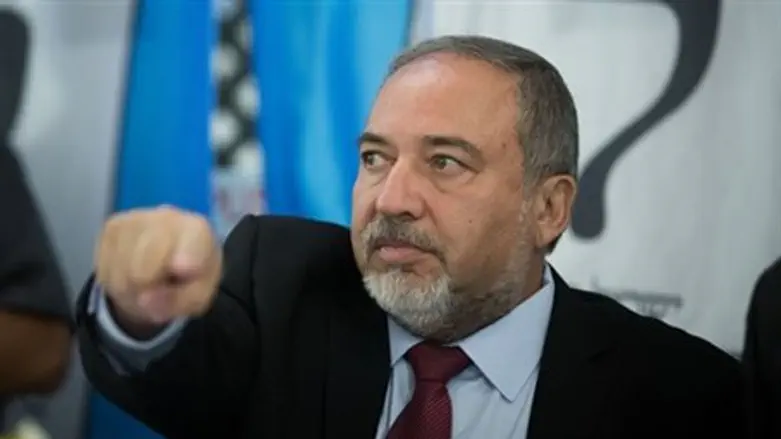
Yisrael Beytenu Chairman MK Avigdor Liberman said Monday that he believes Israel has a secret agreement with Hamas, according to which it will not carry out targeted killings of Hamas terrorists. The opposition politician, who was foreign minister in the previous government, said that the agreement was struck after 2014's Gaza war, Operation Protective Edge.
"In my estimate, part of the arrangement that [Prime Minister Binyamin] Netanyahu and [Defense Minister Moshe] Ya'alon reached with Hamas under the table, after Protective Edge, is a complete cessation of targeted killings in the Gaza Strip," Liberman told the Knesset Channel.
"From Muhammad Deif to Ismail Haniyeh," he said, "they all have immunity, and that is why they go out to speak to the press nowadays and express their pleasure over the murder of Jews."
"Targeted killings," one of the IDF's prime anti-terror tools, involve picking off senior figures in the Palestinian Arab terrorist infrastructure, usually with precision-guided missiles fired from the air.
In addition, Liberman said, Netanyahu had reached an agreement with the haredi parties even before he headed for the latest elections. "When Netanyahu dissolved the previous Knesset, it was clear to me that he had reached understandings with the haredim," he explained.
"I did not know that he had surrendered to them to the point where a document of surrender was drawn up, which included a commitment that the haredim will be a part of any future government he establishes. When I saw the coalition agreement with United Torah Judaism, I realized I have nothing to seek there," he said.
Liberman, a longtime political ally of Netanyahu's since their youthful days, was widely expected to join Netanyahu's government. The reasons he chose not to do so remain the subject of much speculation.
Those who choose to believe Liberman accept his claim that he objects to Netanyahu's policies on various issues. Others think personal animosity between the men may be at play, while the most hardened cynics think the current wide-ranging police investigation into alleged corruption by senior members of his party could have something to do with the decision.
Others have speculated that the decision was simply a political gamble taken by the Yisrael Beytenu leader in order to reinvigorate his party, which slipped down to just six seats in the last general elections.
